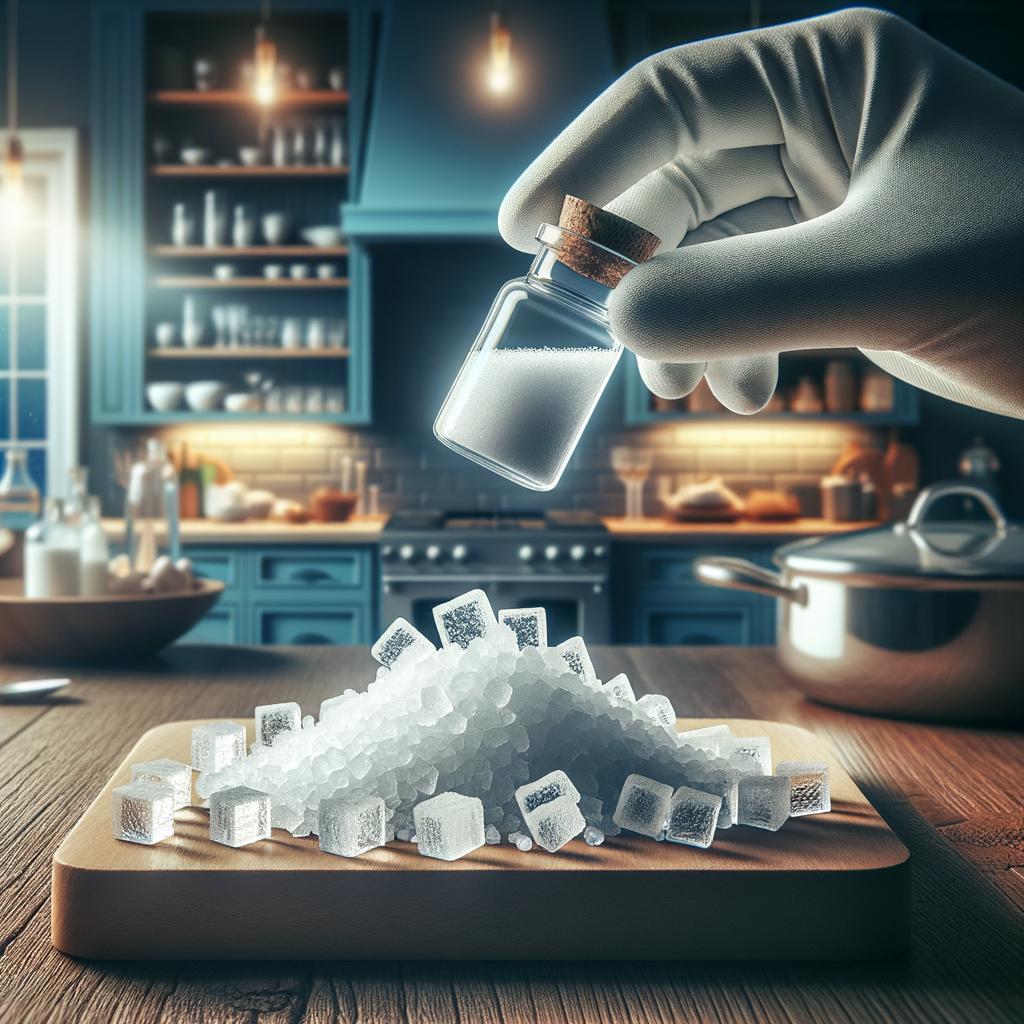Potassium Chloride

Potassium Chloride
Description
Potassium chloride is a fascinating ingredient with a somewhat mysterious aura. It is a crystalline white substance, similar in appearance to table salt. Its texture is coarse, granular, and chalky. The flavor profile of potassium chloride is saline, almost indistinguishable from common salt, but with a slight metallic aftertaste that sets it apart. Its unique characteristic, however, is its ability to provide a salty taste while being sodium-free, making it a popular salt substitute for those on a low-sodium diet.
Primary Uses
Potassium chloride is primarily used as a salt substitute in cooking and food preparation. It's a key component in many low-sodium recipes, from baked goods to soups and sauces. It's also used to enhance the flavor of certain processed foods like canned vegetables, meats, and even in some cheese products. Beyond its culinary uses, potassium chloride has significant medicinal applications. It's often used in medical treatments to replenish potassium, a vital mineral for the human body, and to treat low blood levels of potassium.
History
The history of potassium chloride is intertwined with the story of human health and nutrition. While it doesn't have a romantic origin like some spices or exotic fruits, its importance in maintaining human health gives it a unique significance. Historically, it was first isolated from potash, a term derived from the process of leaching wood ashes and evaporating the solution in pots. Its use as a salt substitute gained popularity in the 20th century, as awareness of the health risks associated with high sodium intake grew. There are no specific myths or folklore associated with potassium chloride, but its role in human health has made it a crucial ingredient in our food and medicine.
Nutritional Information
Potassium chloride is a rich source of potassium, a mineral that plays a critical role in maintaining heart health, aiding muscle function, and supporting nerve cell communication. Consuming foods with potassium chloride can help individuals meet their daily potassium needs, which is particularly beneficial for those on a low-sodium diet. However, excessive consumption may lead to hyperkalemia, a condition characterized by high potassium levels in the blood. When compared to sodium chloride, or table salt, potassium chloride offers a healthier alternative for those needing to limit their sodium intake while still enjoying a salty flavor.

